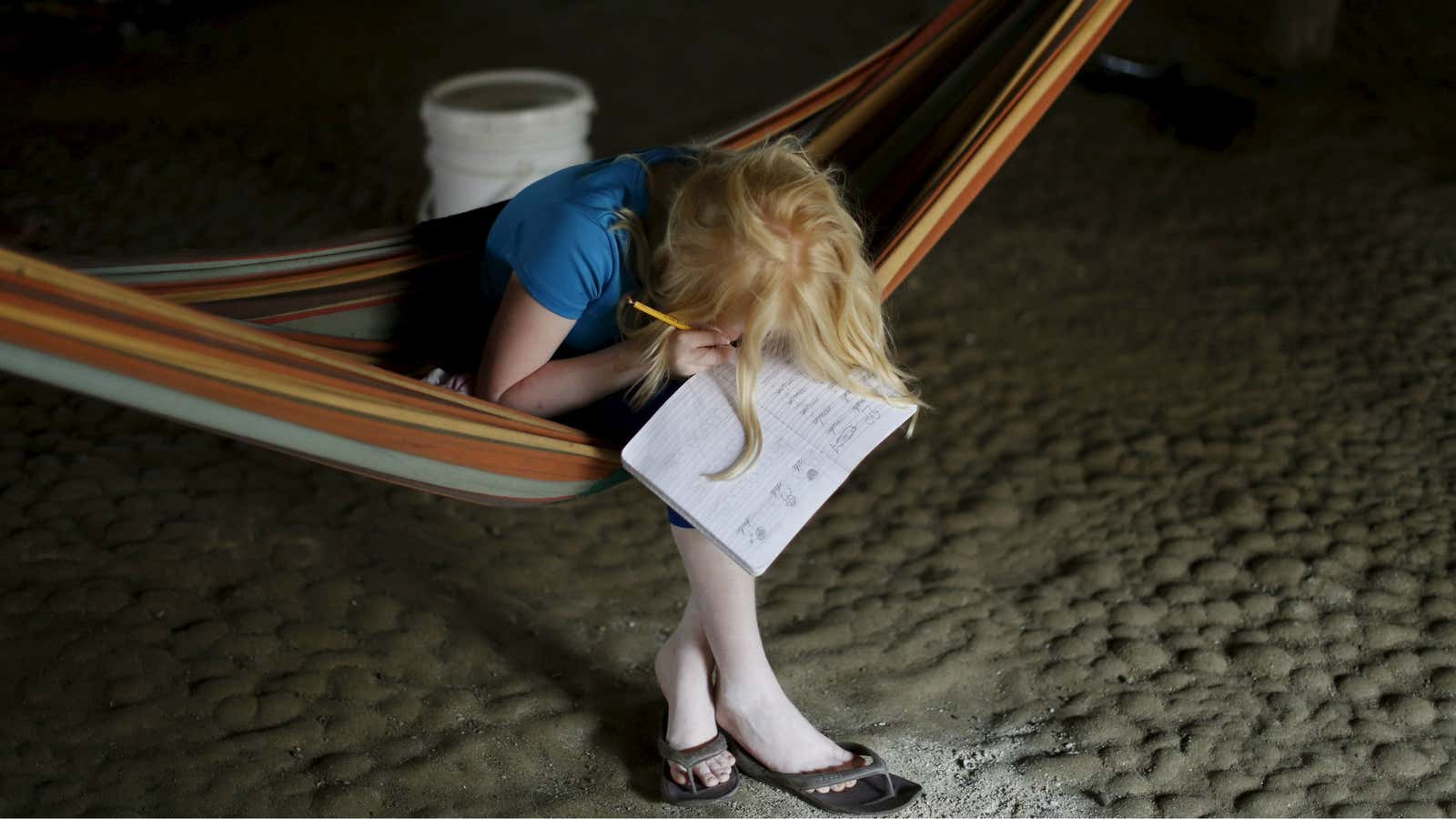The average American high-school student spends seven hours a week on homework. The average for students across all developed countries is about five hours (pdf).
Is it all a colossal waste of time?
Mark Barnes, a former teacher and author, says yes. He tells Quartz his experience teaching, and working with teachers, has convinced him that homework does not improve learning, it gives kids no choice or agency, and students often don’t know what they are doing. As a result, the exercise gets punted to parents and kids end up burned out.
“The biggest danger and problem is it makes kids hate learning,” Barnes says. “There is nothing worse in the education world than losing kids because we are crushing their curiosity.”
At the end of his 20-year teaching career, he banned it. The result: “My students enjoyed class and become intrinsically motivated independent learners.”
Barnes is a believer in the work of Alfie Kohn, author of The Homework Myth and a prominent education writer. Kohn argues that the negative effects of homework are well-known and the positive effects are mythical: it does not reinforce learning nor does it improve academic results, and it cuts into a child’s time with family and friends.
For younger students, in fact, there isn’t even a correlation between whether children do homework (or how much they do) and any meaningful measure of achievement. At the high school level, the correlation is weak and tends to disappear when more sophisticated statistical measures are applied.
But they should probably do it anyways, right?
There are plenty of people—and teachers—who like homework. Take Annie Murphy Paul, who is writing a book about the science of learning. She argues that testing reinforces learning, and can be used not just for assessing performance. “Every time we pull up a memory, we make it stronger and more lasting, so that testing doesn’t just measure, it changes learning,” she writes.
She suggests specific methods to make homework more effective. Those include spaced repetition, or learning in smaller bite sizes over longer periods of time, and interleaving, or mixing up concepts instead of grouping them to force kids to think about what they are doing.
The authentic homework movement, which discourages rote learning and encourages students to have more input in what they do, has gained a lot of steam. The so-called flipped classroom allows kids to watch instructional videos at home and then use class time for problem solving, where the teacher is on hand to help.
Yes, but…
John Hattie, director of the Melbourne Educational Research Institute, synthesized more than 800 meta-studies covering more than 80 million students to figure out what specific factors are linked to better learning outcomes. Tom Sherrington, a teacher who is a firm advocate of homework, analyzed Hattie’s research and concluded that there is little benefit to homework for kids in primary school, but “excellent” results for students in secondary school, or from age 11.
Some of the caveats that Sherrington stresses are that more precise homework is more effective, and teacher monitoring and involvement is key. Other studies have shown that homework helps improve math scores, but has little effect for subjects like English, history, and science.
These nuances is often lost in the debate over whether kids need more homework, no homework, or just smarter homework.
A key principle is that moderation is important. The average amount of weekly homework assigned to kids across OECD countries fell by an hour between 2003 and 2012, with only a few countries—the US and Australia among them—bucking the trend with increased workloads.
Many schools use the 10-minute homework rule, meaning 10 minutes of homework per grade level, per night. That means 10 minutes for first grade, 20 minutes for second grade, and so on, with a ceiling of two hours for 12th grade.
Since most agree that too much homework leads to bad outcomes—stress, fatigue, and potentially anxiety and depression—it’s worth sticking to these rules. Those who disagree have been neglecting their studies.
